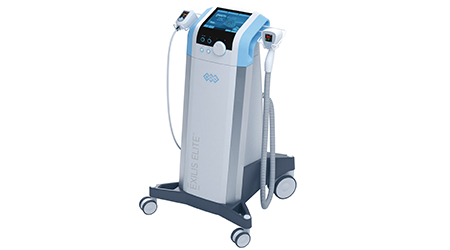
According to the American Society of Plastic Surgeons, in 2016, Americans spent more than $16 billion on cosmetic procedures and it’s not just in the US, the beauty business is booming the world over. A growing number of doctors, including those of different specializations – obstetricians, family practitioners to emergency room physicians and even therapists – are jumping on the beauty bandwagon to capitalize on this lucrative trade. Consequently, we also saw rising patient complaints and a fall in consumer satisfaction.
Sure, you’d have heard of or personally experienced horror stories of treatments gone awry? How about hearing a certain beauty clinic engaging in unethical practices? If it’s more than your hard-earned money (like your beauty and life) you’re afraid of losing, these are some of the red flags you ought to look out for before committing to a beauty procedure.
1. Skin Doctor is Not Board-certified
“When you use a generic medical license to practice other forms of medicine,” he said, “there is an inherent danger to patient safety.”
Throw yourself a lifeline and spare the ineffective treatments, scarring and countless unnecessary revisions by selecting a doctor who also has ample experience. This weeds out incompetent ones who may have simply spent a week or two at a course or seminar before setting up their practice.
2. Clinic is Not Accredited
A facility practicing cosmetic procedures ought to be properly accredited. Accreditation ensures that strict standards are met for proper equipment, sanitation, safety, doctor credentials and staffing. This is many a time neglected when travelling abroad to seek aesthetic treatments in cosmetic surgery hubs like Korea, Thailand or Europe which are renowned for their expertise and enticingly competitive prices.
“One of the problems of having any surgery abroad is that it’s difficult to know the processes of certification in each individual country,” said Dr. Adam Kolker, a Plastic Surgeon in New York. Thus, if you are not keen on waking up in a foreign land with a horrifyingly new face, you should research thoroughly on accredited and reputable clinics beforehand to ensure your procedure is done in the safest possible environment.
3. Less than 5 10 Years in Operations
Remember pop clinics which closed down and left patients with treatment packages high and dry?
Track record counts; a well-established clinic is a demonstration of safe and ethical practice.
Besides the clinic’s history, it’s highly recommended to select award-winning clinics as with a reputation to upkeep, they will be more meticulous in their work. Here’s another reason to drop new clinics: they are most likely to offer a narrow range of treatments and services due to budget limitation.
“As a group practice with more than a decade experience, our clinic has some of the best aesthetic doctors in Singapore and a comprehensive range of both surgical and non-surgical options. This differentiates us and enables us to offer the best advice to our patients,” explained Dr. Kenneth Lee, Founder of SW1 Clinic .
4. Uses Generic Cosmetic Products
As with a generic medical licence, generic products and devices cannot produce truly amazing results in a short amount of time as compared to quality ones.
Dr. Lee emphasized the importance of quality and remarked, “Patients need to be discerning about the treatment products being used, price aside. For instance, although home based light devices are gaining popularity due to their claims to promote healthy and rejuvenated skin, their results contrast starkly with low level energy lights used in clinics. The same can be said of IPL treatments for hair removal using generic devices; they are ineffective, results are not long-lasting and do not match up to FDA approved laser equipment.”

Some doctors have launched aesthetic clinics armed simply with a few low cost generic lasers, and masquerading them as equivalent alternatives to FDA approved ones.
In essence, you’d be doing your wallet (and your skin) a great disservice if you buy into the cheap price beauty packages without questioning and fact-checking if there were any clinical based, scientific research done on the treatment product ingredients or devices.
5. Not Filling out a Form
Whether it’s a filler, breast augmentation, threadlift or simple facial you’re indulging, so long it’s your first visit to a beauty clinic, you should not take the absence of filling out a form lightly. In fact, 5 pages of Q&A detailing your medical history is a bargain should any complication arise.
“It is an unnecessary risk to follow through with a procedure without filling out any kind of medical form.”
“Doctors need to question and assess your allergies, existing health conditions and if you’re on any medication to advice the best course of treatment. Similarly, doctors should offer a consultation prior to surgeries, invasive or not, to answer your questions before getting your consent to continue,” said Dr. Tan Ying Chien, a Singapore Plastic Surgeon. With a form, your beauty mavens can deliver your dose of beauty safely.
6. Hard-selling
Despite the fact that cosmetic treatments should be tailored and individualized to what you need for the most desirable results, meaning doctors sometimes suggest more procedures that may complement or enhance the result, you should not feel obligated to agree with them.
Your potential doctor should be looking out for your best interest and could even turn down your request in certain situations. Dr. Tan shared, “I will say no to a skinny patient asking for a fat transfer to increase volume in perhaps the breast. Instead, I will recommend breast implants.”
He added that should patients not understand the benefits of the procedures after explanation and treatment areas suggested do not make sense like a consult of rhinoplasty digressing into an encouragement to take up liposuction, they might want to find another surgeon. So, remember if you feel pressured to commit to something you don’t want, you’re free to walk away from it!

